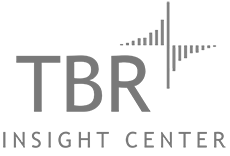2019 Public Sector Predictions: Ethics compound complexity as federal agencies rush to embrace commercial IT innovations
The march of technology challenges humans to keep up, leading to difficult conversations for the many technology firms clamoring for a slice of federal IT modernization spend
In 2018 U.S. federal government policy and budget aligned to amplify excitement around the long-promised application of private sector IT innovations to public sector missions. We began to see action as government policies such as the President’s Management Agenda and National Defense Strategy combined with a bipartisan budget agreement to send a clear message that government agencies need to embrace cloud operating models and explore new technologies to reduce costs, move faster and serve constituents more effectively.
In a prevailing movement TBR calls Wallet vs. Will, the federal market’s pursuit of commercial IT represents a fundamental shift from traditional procurement models predicated on bespoke, costly and difficult-to-replace proprietary technology to a more agile model leveraging configurable off-the-shelf solutions enabled by open standards. In the old model, prohibitive cost was the primary impediment to moving technology forward, driving top-down commercialization models out from the Pentagon, or the wallet holder. In the emerging model, the axis has flipped as technology is no longer the problem but rather the will of the humans interacting with technology has become the main obstacle to keeping up with technological advancement.
As technology moves forward at breakneck pace, government policy and regulations will struggle to keep up. Law as the codification of an agreed-to set of ethical standards remains woefully behind as society struggles with the implications of technology development on myriad issues, from a citizen’s right to privacy to warfighting. In 2019 familiar market trends such as transformative M&A in the IT industry broadly and in the federal services market specifically will continue to reshape the market and create new disruptions. However, we believe that the continued ethical debate around emerging technologies, as much as who holds the innovative IP around those technologies, will help shape the competitive landscape in the years ahead.


Leave a Reply
Want to join the discussion?Feel free to contribute!